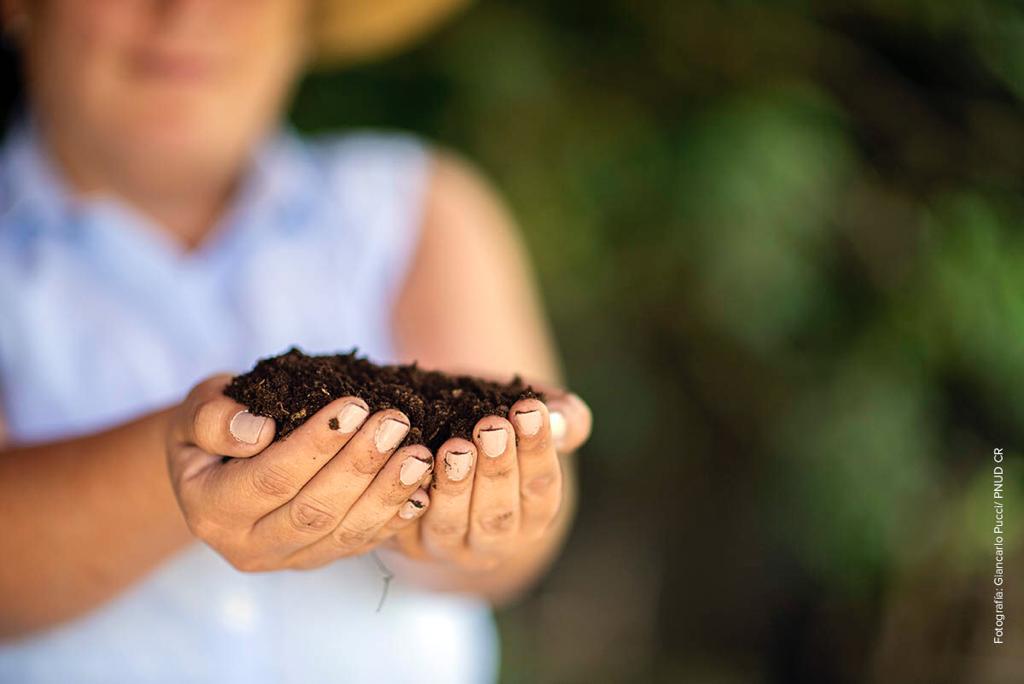When I think of the link between women and nature, I think of Gladys, María Luisa, and María Elena. They represent many women I’ve known whose love and vocation for caring for natural resources led them to challenge the system to pursue jobs in Costa Rica’s protected areas, a sector that has traditionally been a space for men in Costa Rica. For these first female park rangers in Costa Rica, this meant accepting lower-paying positions and performing tasks outside of their job descriptions, almost as evidence, until they demonstrated that their vocation was stronger than the obstacles they faced. Today, more women are entering the system in operational posts in protected areas, or positions in regional offices where they work as guardians of forest and wildlife resources. They also experience fewer situations of discrimination—or at least, I’d like to think so.
Other women who come to mind are Sonia and Keilyn, who represent those women who since the eighties joined fire brigades and who defended our forests from fires. Their effort and role were also made invisible, and it was not until 2019 that for the first time they were assigned uniforms with the words FOREST FIREFIGHTER.
I also think of doña Guillermina, in the Northern Zone, as an example of all the rural women who have promoted the conversion to agroforestry systems; diversified the income from their productive farms; and, in many cases, incorporated rural tourism activities. Yes, those women have also been protagonists in the construction of the productive landscape. They are a big part of the reason that Costa Rica can proudly tell the world that we have managed to reverse deforestation and regenerate our forest cover. Today, Costa Rica’s forest coverage is 52% thanks to a combination of successful public policies, including the creation of protected areas and Payment for Environmental Services.
Hearing the voices of these women, speaking and working for them is important. Their life experiences and those of many other women dedicated to safeguarding and sustainably managing Costa Rica’s natural resources have been overlooked by history and by our institutions. Most public policies on the conservation and management of biodiversity were issued without women’s perspectives. Because this reality wasn’t a part of the discussion, women have been left behind. It has been difficult for them to reach leadership positions or participate in decision-making spaces. They’ve been excluded from technical advice, incentives and financing from the government.

This reality, little studied not only in Costa Rica but also around the world, was abundantly evident to me when I assumed the Vice Ministry of Environment of Costa Rica for two years (2018-2020) after working for 18 years on biodiversity conservation issues in the NGO sector. Being in a political position, being a woman, it was impossible not to feel these institutional inequalities on my very skin, as well the gaps in the interventions of the Ministry of Environment and Energy (MINAE). Over the two-year period—with the commitment of a team of women and with the support of Minister Carlos Manuel Rodríguez, Vice President Epsy Campbell and the United Nations Development Program (UNDP)—we carried out a study of gender gaps in the environment promoted by the National REDD Plus Strategy, financed by the World Bank, and a study of gender gaps in the National System of Conservation Areas (SINAC). The results were the basis for making decisions and achieving public policies containing concrete actions to begin to close gender gaps, such as the Ministerial Gender Directive and the creation of the + Mujeres + Natura (More Women, More Nature) Program.
The Ministerial Directive established the governing institutions of biodiversity management issues (SINAC, FONAFIFO, CONAGEBIO) responsible for ensuring equal hiring of men and women in the generational renewal they now face. It also urges these entities to make sure gender equality in the membership of related organizations :in the case of forest councils, not a single woman was participating in them in 2019, according to the assessment. The directive also requests annual reports of staff composition, not only giving the total number of women and men, but also providing data and statistics by type of position: for example, gender makeup of leadership positions such as regional directors, supervisors and managers, and technical positions. Finally, the directive called for infrastructure design in protected areas to be inclusive of both genders, reducing the risk to which many workers have been exposed due to not having this type of infrastructure.

Meanwhile, the +Mujeres +Natura Program established financial mechanisms designed for women biodiversity managers, including:
- The Mujer Natura de Fundecooperación credit, which grants funds to women producers for seed capital, equipment, and the conversion of productive activities tomore sustainable practices. This credit also offers fiduciary, movable or mortgage guarantees, depending on the amounts. Women living in poverty who cannot access a trustee can use the endorsement of the Mixed Institute of Social Assistance as a guarantor.
- The FONAFIFO a tu Lado credit, which is aimed at all women who have forest-related enterprises (agroforestry systems, reforestation, tourist activities) with a 4% fixed interest rate.
- And the Women’s Environmental Services Program (PSA Mujer), also from FONAFIFO, which seeks to ensure that the few women who own forest lands (15% of productive farms in Costa Rica) can be beneficiaries of the PSA. For this purpose, FONAFIFO changed its evaluation system, giving 25 points to those requests sent by women.
Ten months after the launch of the + Mujeres + Natura Program, more than one billion colones (approximately $1.63 million) have been placed in the hands of rural women using these three financial mechanisms. However, we need to get the word out about these mechanisms to more women throughout the country so that more female biodiversity managers can face the socioeconomic crisis that was intensified by the effects of the pandemic, and turn the situation into opportunities for their enterprises.
These types of interventions are of vital importance to help overcome the barriers faced by rural women in Costa Rica. Most of them do not have property titles. Rural women invest as many as 26 hours more per week than men in caregiving work, which is also one of the reasons why it is difficult for them to participate in decision-making or training spaces, or to take advantage of technical support offered by institutions. According to the 2014 Agricultural Census, 72.8% of the work that these women carry out on their farms is unpaid work. Initiatives such as + Mujeres + Natura must be extended and complemented in order to incorporate rural women into the economic recovery of Costa Rica. Their inclusion is critical, considering that the gaps have widened due to the impacts of the pandemic. Many of the rural women were in the informal sector; many provided services to the tourism industry, which has been seriously impacted by the pandemic, especially medium and small businesses.
An economic reactivation that seeks the involvement of women, collaborative work, and the facilitation of financial mechanisms will make it possible for women to use their knowledge in order to lead new economies, strengthen family agriculture, and position themselves in the reactivation of rural tourism. Investing in women is a human rights issue, but also investment in regional economic development.
In my professional life I have had great passions: the conservation and management of biodiversity, working with people and communities, and promoting collaborative leadership. More recently, a major passion has been working to publicize the work of women in the environmental sector and the gaps they face in carrying out their work, in order to contribute to closing these gaps between men and women. All these passions, together with my work in various sectors, motivate me to participate in the Voices section of El Colectivo 506. Here, I will be sharing motivating stories, data that inform and instruct us on various topics, achievements to celebrate, and discussion and opinion related to the challenges that we still have to face. I can’t wait to hear your comments and contributions to all these issues that pave the way to a more sustainable and equitable society.
We’re proud to share this first column from Pamela Quirós as part of our April edition, “The trailblazers,” focused on rural community tourism. Check out the issue here. If you have ideas and comments for Pamela’s upcoming columns on women and conservation, contact us!






